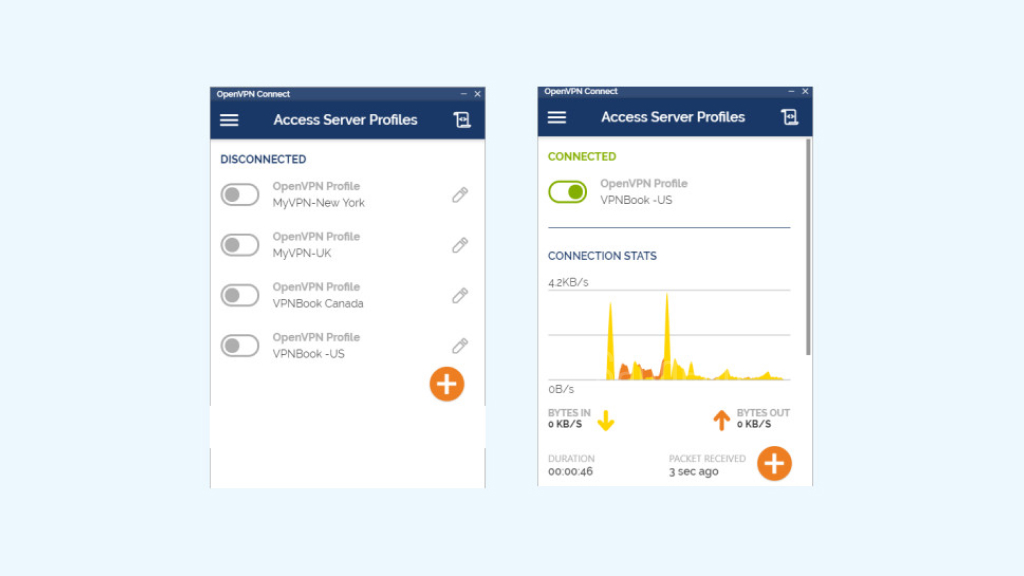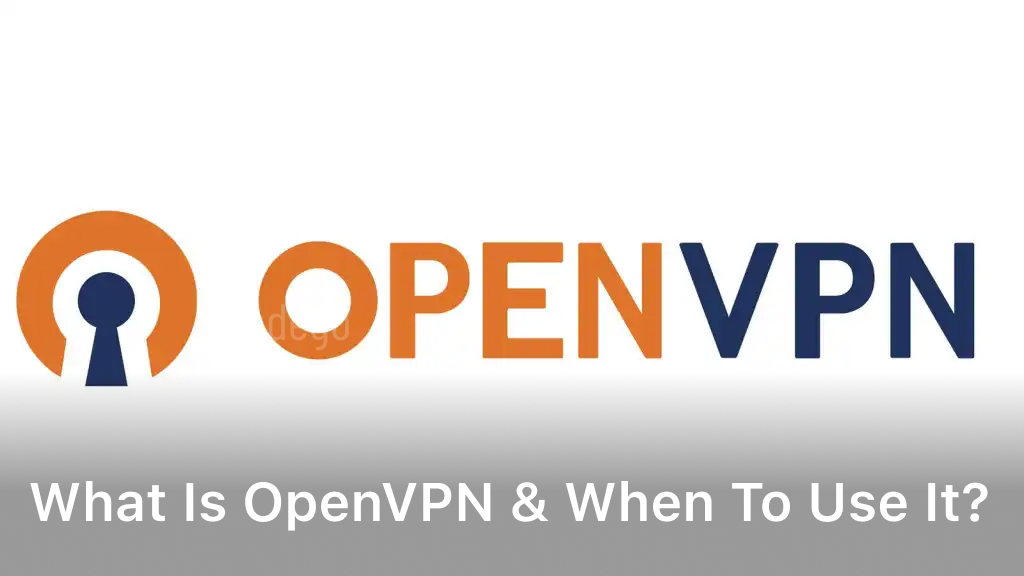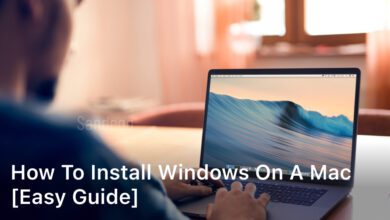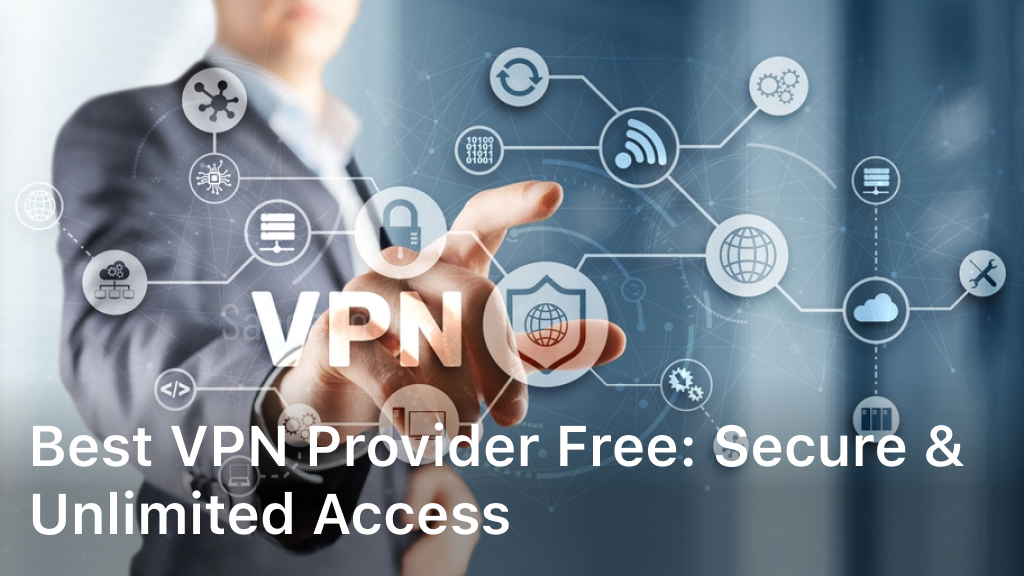Are you concerned about your online privacy and security? Do you want to protect your confidential data from prying eyes? If yes, then OpenVPN is the solution you need. In this article, we will provide a comprehensive guide on what is OpenVPN, how to set it up, and how to use it effectively. Whether you’re a beginner or an advanced user, our OpenVPN tutorial will help you get started with this robust VPN protocol and take your online privacy to the next level.
OpenVPN provides an encrypted tunnel between your device and the internet, ensuring that your online activities are shielded from surveillance and threats. It is a free and open-source software that is compatible with Windows, Linux, macOS, Android, and iOS devices. OpenVPN is easy to set up and highly customizable, making it an ideal choice for individuals and businesses seeking a secure and reliable VPN solution.
So, if you’re looking for a VPN protocol that offers top-notch security, speed, and versatility, OpenVPN is the answer. Our OpenVPN setup guide will walk you through the process of installing and configuring OpenVPN on your device, and our OpenVPN tutorial will provide tips and best practices to help you maximize its benefits. Let’s get started!

Understanding OpenVPN Protocol
OpenVPN protocol is a powerful tool that provides secure and private communication on the internet. It is a reliable protocol that ensures your online activities remain confidential and protected. OpenVPN offers several security features that are specifically designed to safeguard your data and privacy while using the internet.
With OpenVPN, all data that is transmitted over the internet is fully encrypted, making it impossible for anyone to intercept or decipher the information. This ensures that your sensitive data, such as passwords and credit card details, remain secure and private.
OpenVPN is also highly customizable, giving you full control over the security measures that are implemented. This includes the ability to choose your preferred encryption method, as well as other security protocols that work seamlessly with OpenVPN.
Overall, OpenVPN protocol provides a robust and highly effective solution for anyone who needs to maintain online privacy and security. Its advanced features make it one of the most secure VPN protocols available today, and it is highly recommended for anyone who wants to keep their data safe and secure on the internet.
Setting Up OpenVPN Client
If you’re new to OpenVPN, setting up the client may seem daunting at first. However, we’ve broken the process down into simple, easy-to-follow steps. First, visit the OpenVPN website and download the appropriate client for your operating system. Then, install the client on your device by following the on-screen instructions.
Next, you’ll need to configure the client with your VPN connection details. This includes the server address, username, and password provided by your VPN provider. Don’t worry if you’re not sure what to enter; most providers offer clear instructions on their website. Once you’ve entered the details, save the configuration and connect to the server.
It’s important to ensure that your OpenVPN client is properly configured to maximize security. Always use the latest version of the client software and regularly update your system. By following these steps, you’ll be able to set up OpenVPN client quickly and easily.
Configuring OpenVPN
To fully optimize OpenVPN performance, it’s important to configure this VPN protocol according to your specific needs.
The first step to configuring OpenVPN is to ensure that you have the latest version installed. Updates usually come with improvements, new features and security patches.
Once you have the latest version installed, you can then customize the settings based on your personal use cases. For example, if you’re streaming video content, you may want to adjust the Quality of Service settings to prioritize bandwidth.
You can also adjust encryption levels, port settings, and routing options to maximize performance. Advanced users can customize the configuration file manually and make changes to the OpenVPN protocol to meet specific requirements.
It’s important to keep in mind that certain configurations may reduce privacy and security levels. Therefore, it’s essential to evaluate the risks and benefits before making any changes.
Overall, the ability to tailor OpenVPN to your individual needs is one of the benefits that makes this VPN protocol stand out from the rest. With the right configurations, you can enjoy a faster, more secure, and more flexible VPN connection.
Deploying OpenVPN Server
Deploying an OpenVPN server allows you to establish a secure connection between multiple devices and ensure that all data transferred between them is encrypted. To set up your OpenVPN server, follow these simple steps:
Step 1: Choose a Server Provider
The first step in deploying your OpenVPN server is to choose a server provider that meets your needs. Look for a provider that offers a wide range of features, including high-speed connections, reliable uptime, and robust security measures.
Step 2: Choose Your Server Operating System
Next, you’ll need to choose the operating system that you want to use for your server. OpenVPN is compatible with a wide range of operating systems, including Linux, Windows, and macOS.
Step 3: Install OpenVPN
Once you’ve selected your server operating system, the next step is to install OpenVPN. You can do this by downloading the appropriate installation package from the OpenVPN website and following the installation instructions.
Step 4: Configure OpenVPN
After installing OpenVPN, you’ll need to configure it to meet your specific needs. This includes setting up security measures like encryption and authentication, as well as configuring the network and server settings.
Step 5: Test Your Connection
Finally, you’ll want to test your OpenVPN connection to ensure that everything is working properly. This includes testing your connection speed, as well as verifying that all data transferred between devices is correctly encrypted.
By following these simple steps, you can deploy an OpenVPN server and establish a secure connection between your devices. With robust security measures and reliable connections, OpenVPN is an excellent choice for anyone looking to maximize their online privacy and security.
Benefits and Advantages of OpenVPN
OpenVPN is a widely used VPN protocol that provides numerous benefits and advantages over other VPN protocols. One of the main advantages of OpenVPN is its flexibility; it can be used on multiple platforms and devices thereby making it versatile and convenient.
Another major benefit of OpenVPN is its robust security features that provide a high level of protection for your online privacy. OpenVPN uses different encryption protocols and technologies, which help to secure your data and communication channels from prying eyes and cyber threats.
In addition, OpenVPN can be customized to cater to different privacy needs, making it a perfect fit for individuals and organizations with diverse priorities. Its customizable settings and configurations allow users to maximize their security measures and privacy concerns.
In summary, OpenVPN’s flexibility, robust security features, and customization make it an ideal choice for safeguarding online activities and ensuring data privacy.
Maximizing OpenVPN Security
When using OpenVPN, it is crucial to maximize its security measures to ensure the safety and privacy of your data. Here are some tips and best practices to follow:
- Ensure that you are using the latest version of OpenVPN to leverage the latest advancements in security technology.
- Use strong and unique passwords to prevent unauthorized access to your OpenVPN account.
- Enable two-factor authentication for an added layer of security.
- Configure your firewall to allow only authorized OpenVPN traffic to pass through.
- Enable network lock feature to ensure your entire connection is safeguarded and prevent any data leakage.
- Regularly update and maintain anti-virus and anti-spyware software to protect against malicious attacks.
Following these best practices will help ensure that you are using OpenVPN to its full potential and maximizing its security features to protect your online privacy and data.
Conclusion
As we conclude this article, we hope we have provided you with valuable insights into OpenVPN and how it can benefit you. We have discussed the significance of OpenVPN protocol in securing your online activities and the variety of advantages it offers over other VPN protocols.
We have also guided you through the process of setting up the OpenVPN client and server, configuring it for optimal performance and maximizing its security features. By following the step-by-step tutorials, you should have no trouble in setting up OpenVPN on your device and securing your online privacy.
Lastly, we would like to reiterate the importance of online privacy and the role that OpenVPN can play in protecting your data. With the increasing risk of cyber-attacks, it’s crucial to take every measure to safeguard your personal information. OpenVPN offers robust security features and flexibility to cater to different privacy needs.
We hope you found this article informative and beneficial. Thank you for reading and stay secure!
FAQ
What is OpenVPN?
OpenVPN is an open-source virtual private network (VPN) protocol that provides secure and encrypted communication over the internet. It allows users to create a secure connection between their devices and a remote server, ensuring the privacy and confidentiality of their online activities.
When should I use OpenVPN?
You should consider using OpenVPN when you want to enhance your online security and privacy. It is particularly beneficial in situations where you need to access sensitive information, such as business data, personal files, or when connecting to public Wi-Fi networks. OpenVPN is also widely used for bypassing geo-restrictions and accessing content that may be blocked in your region.
What is the OpenVPN protocol and why is it important?
The OpenVPN protocol is the technology that enables secure communication and data encryption in OpenVPN connections. It utilizes robust cryptographic algorithms to create a secure tunnel through which your data is transmitted. The OpenVPN protocol is important because it ensures that your online activities are protected from eavesdropping, data theft, and other malicious activities, providing a higher level of security compared to traditional VPN protocols.
How do I set up the OpenVPN client?
Setting up the OpenVPN client is a straightforward process. First, you need to download and install the OpenVPN client software on your device. Then, you will need to obtain the necessary OpenVPN configuration file from your VPN service provider. Once you have the configuration file, you can import it into the OpenVPN client and establish a connection to the desired VPN server. Detailed step-by-step instructions can be found in the OpenVPN setup tutorial provided by your VPN service provider.
How do I configure OpenVPN?
OpenVPN provides various configuration options that allow you to customize your VPN connection according to your preferences. You can adjust settings such as encryption protocols, port numbers, DNS settings, and more. The specific configuration process may vary depending on your operating system and the client software you are using. To configure OpenVPN, you will typically need to modify the OpenVPN configuration file or use the client software’s interface to make the desired changes.
How do I deploy an OpenVPN server?
Deploying an OpenVPN server involves setting up a server-side infrastructure that allows multiple devices to connect securely. The process includes installing the necessary software, generating SSL/TLS certificates, configuring the server, and managing user authentication. Each operating system has its specific steps and tools for deploying an OpenVPN server. Consulting the official OpenVPN documentation or specific tutorials for your operating system can provide detailed guidance on the deployment process.
What are the benefits and advantages of using OpenVPN?
OpenVPN offers several benefits and advantages that make it a popular choice for secure communications. Firstly, it provides strong encryption to safeguard your data, ensuring that it cannot be intercepted or accessed without authorization. Additionally, OpenVPN is highly versatile and can be used on various operating systems and devices. It is also known for its stability and scalability, allowing for seamless connections and easy integration with existing network infrastructure.
How can I maximize OpenVPN security?
To maximize OpenVPN security, it is essential to follow best practices. These include using strong and unique passwords, regularly updating your OpenVPN software, connecting only to trusted and reputable VPN servers, and enabling features such as two-factor authentication and firewall protection. Additionally, it is crucial to keep your operating system and antivirus software up to date to ensure a secure computing environment.






